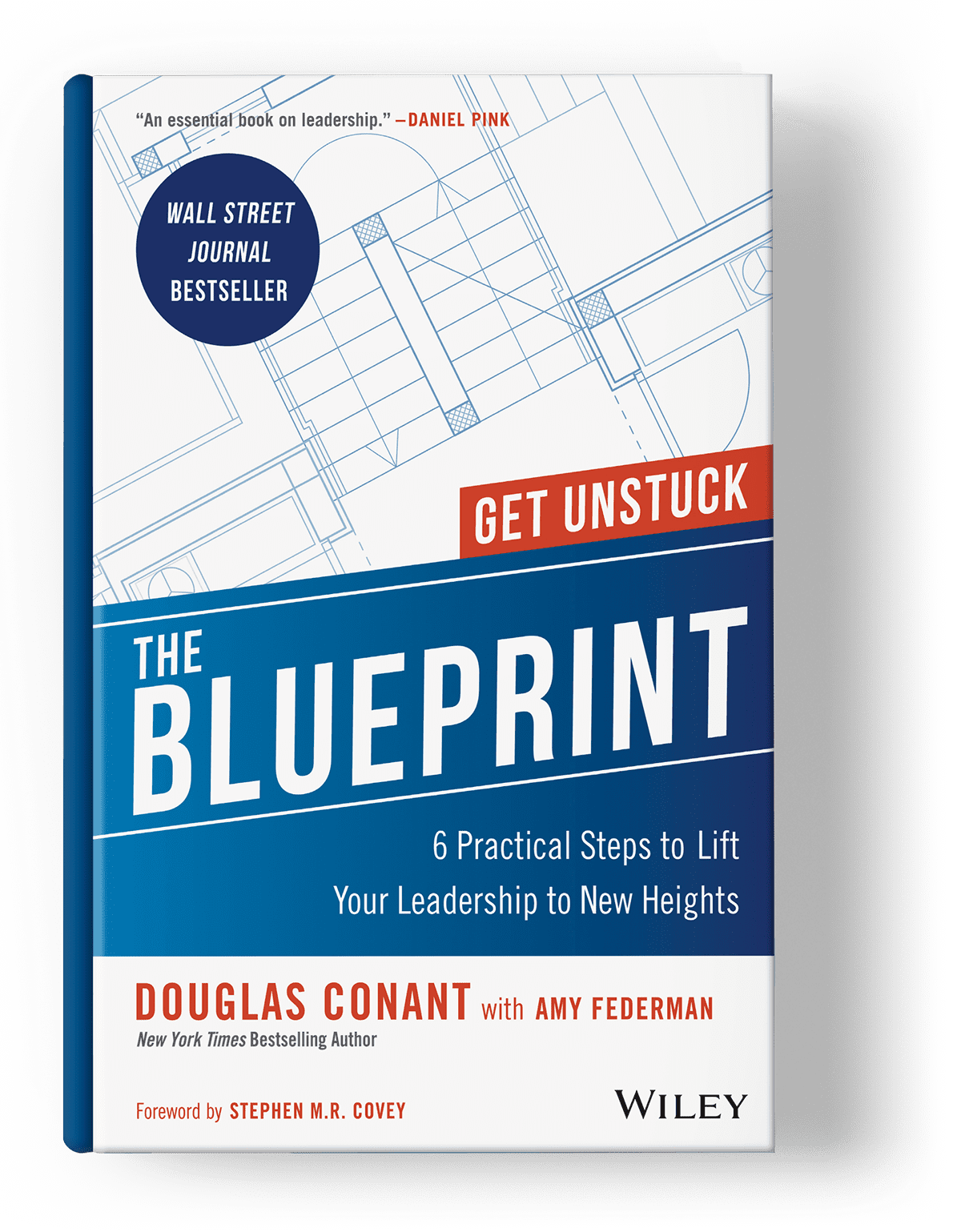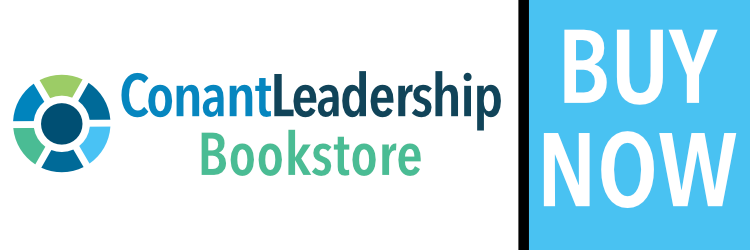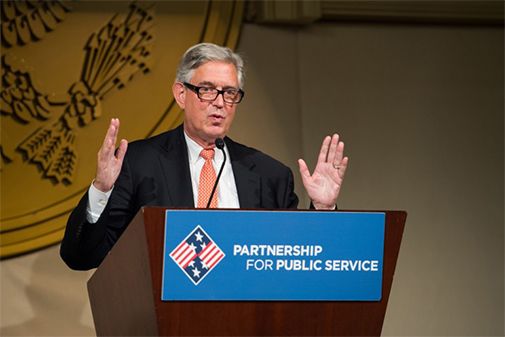Today we dispatched the April edition of our Leadership That Works Newsletter, a curated digest of smart leadership links to read right now, sent at the end of each month. In this month’s 7 essential leadership links to read right now: take a stand, master EQ, champion women, be brave, and more. As always, we’re sharing the articles from our newsletter here in case you’re not subscribed to our mailing list. If you like what you see, you can sign up to receive our newsletter here.
Don’t Find Your Passion, Develop It
The career advice to “find your passion” is nearly ubiquitous but can feel overwhelming since many people expect to find it in an already “fully formed state” says this interesting New York Times post. But this assumption discourages people from trying and failing as they expect to already be good at their elusive passion once they find it. The truth is, says the article, that we’re often “bad at things when we first try them” but that’s OK. If we have the right attitude, we can improve, and develop our passions along the way. The difference often comes down to mindset: people with a fixed mindset of interest believe their interests won’t change, whereas people with a growth mindset of interest “believe that interests and passions are capable of developing with enough time, effort and investment.” Explore the full post here to learn how to recover from failure, try again, and develop your passion.
**For more on developing a growth mindset to unlock your potential, explore our post on the topic here.
To Build a Brand, Take a Stand
Every brand-builder or marketer’s dream is to go viral. But chasing virality is a losing strategy says Kirstin Benson, VP of Global Entertainment at Getty Images, in this interesting AdWeek article. To really “find and speak” to your tribe and create “loyal and passionate brand advocates” that will spread your message far and wide, brands must first know what they stand for and be able to communicate that in an authentic way. To connect with stakeholders, first identify the big “why”, then you can think of the “who” you will speak to, and the “what” of the story you will tell. Benson explains, “While the who and what might be different every time, each story that you tell and audience that you reach should link back to your brand’s purpose.” Explore the full post here (you may have to enter your email address to access the full article).
Copying Culture Doesn’t Work
“You can’t solve a company’s problems by importing a high-performance culture from elsewhere,” write Jon Katzenbach and Alice Zhou in this fascinating Strategy+Business article. While it may be tempting to model your company culture after, say, a hip tech giant like Google, you’re better off working within your own organization to find what fits your unique business environment. Why? Because, “every company’s cultural situation is as unique as a fingerprint. It incorporates emotionally resonant, deeply embedded perspectives and habits that have built up through years of challenges and experience.” The authors continue, “Moreover, these elements have to fit the company’s strategy and core capabilities, or the company won’t be able to continue delivering value. The behaviors and emotions that should be emphasized in one company may be precisely those that would hold another company back.” So if you can’t crack the code on your company culture by merely copying another organization, what can you do? Katzenbach and Zhou map actionable steps you can take to develop your own high-performance culture here.
**For more on culture change, explore our 3 small ways to make big change here.
Champion Women
Rising through the ranks in corporate America requires tenacity, hard work, and meeting or exceeding expectations consistently. But there’s more to it. Vivian Giang explains another essential ingredient to success in this important Fast Company post: “Supercharging your career requires having someone in a high-ranking leadership position willing to use their power and influence” to vouch for you, open doors for you, and champion you, especially if you are a woman. Giang continues, “But the reality is there just aren’t enough women at the top who can transfer power to the next generation of women all by themselves. . . . For high-achieving women, ascending the career ladder, more often than not, requires sponsorship from an influential male leader.” Giang shares three inspiring stories of men who “step forward to push for positive change” (including ConantLeadership Founder, Doug Conant) and offers tips for other leaders on taking a stand, championing women, and improving performance for everyone. Read the full post here.
The Best Leaders Are Brave
Fortune released its annual list of the 50 World’s Greatest Leaders and they noticed a singular trait that connects all 50 of the honorees across backgrounds and area of expertise: courage. Writes Fortune editor Geoff Colvin, these top leaders all “make bold choices and take big risks—and move others to do the same.” Which begs the question: “How do great leaders find such courage while most people don’t?” Colvin says, “Research points to a personality style called ‘hardiness’.” What does being hardy entail? Hardy leaders “don’t see the world as threatening or see themselves as powerless against large events . . . they think change is normal, the world is fascinating, they can influence events, and it’s all an opportunity for personal growth.” To learn how to foster your own hardiness, explore the article and the full list of 50 leaders here.
**For more on leading with courage, explore our post on courageous leadership here. For more on hardiness, explore our post on how to build leadership grit here.
Mastering EQ
Emotional Intelligence, or EQ, is largely understood to be an essential leadership competence that helps us “understand competitive behavior and manage a diverse group of people” writes former FBI and Counterintelligence agent, LaRae Quy in this practical SmartBrief post. As an FBI agent, Quy had to develop EQ in order to survive dangerous situations, to sense the emotions of others before a gun was drawn or a fist was thrown her way. But EQ is equally as critical for survival in the corporate world. Quy shares four essential things you need to know to become more emotionally intelligent and offers tips for incorporating more EQ practices into your daily leadership here.
Are You Culturally Fluent?
Enjoyed these links? Check out our recent link roundups from March, February, and January. Explore our suite of leadership resources here. Or, join our mailing list here.
Ready to take your leadership to the next level this year? For a practical and transformational leadership experience that fits perfectly into your busy life, apply to attend one of our upcoming 2-day leadership Boot Camps, taught personally by our Founder, Doug Conant, the only former Fortune 500 CEO who is a NYT bestselling author, a Top 50 Leadership Innovator, a Top 100 Leadership Speaker, and a Top 100 Most Influential Author in the World. It’s 2 days of in-person training, a lifetime of results: conantleadership.com/bootcamp






0 Comments